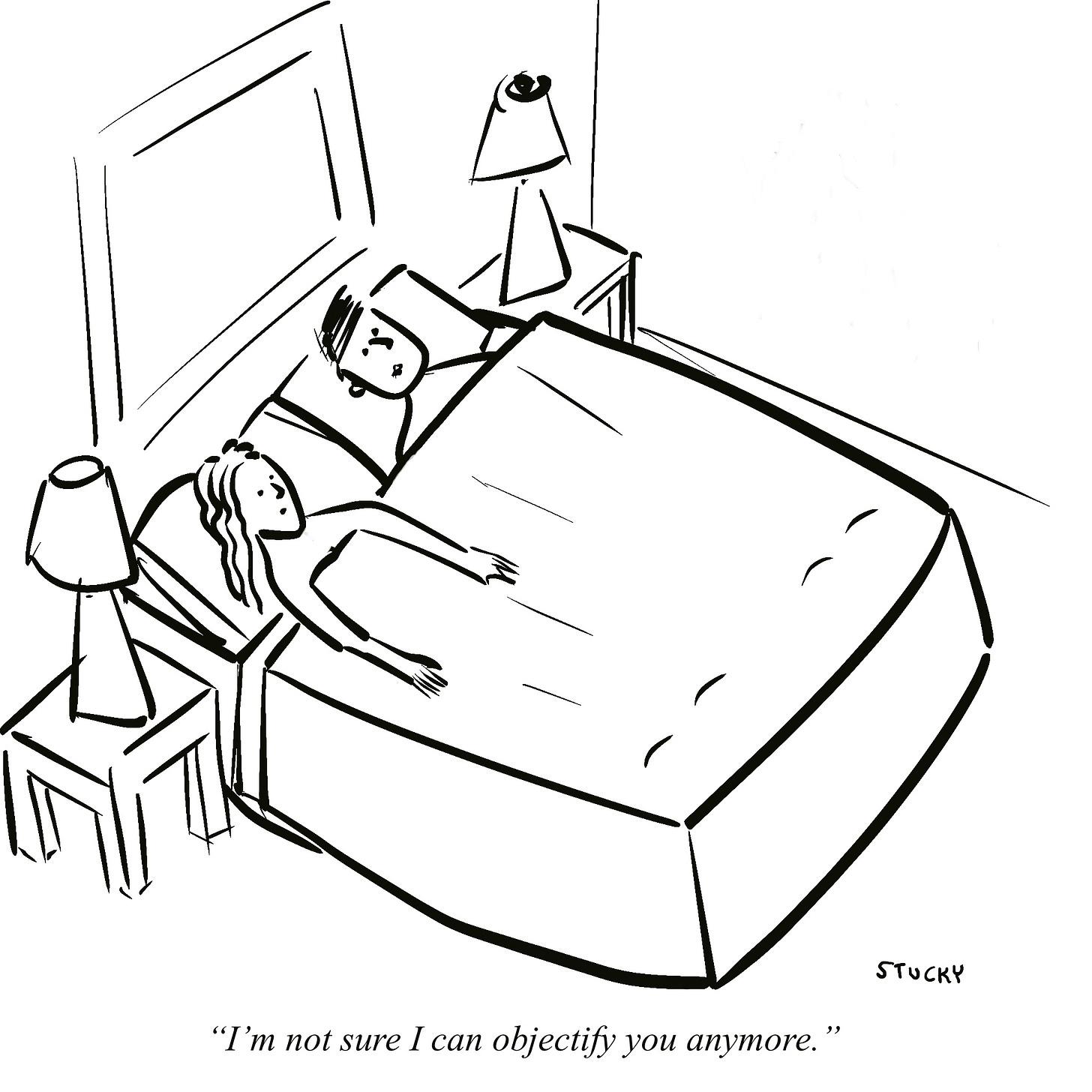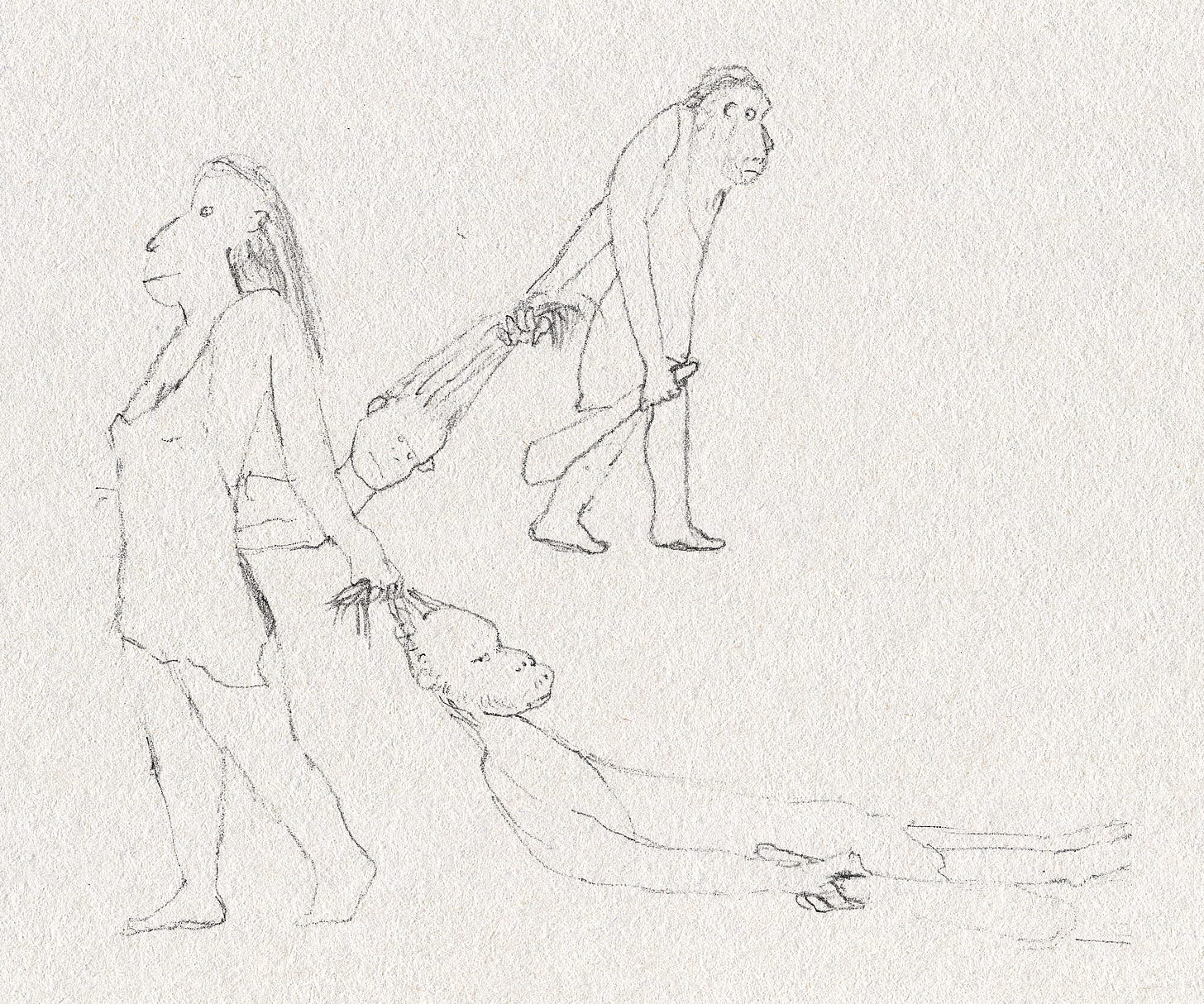BREAKING: Men
The male sex is in a sorry state, but you know what, we'd rather not talk about it.
In the aftermath of the U.S. election, the term “boycott” has come up a few times. We’ve heard about people boycotting family members at Thanksgiving and women boycotting sex with their partners to protest the way they voted.
I say good luck with that. Nobody is going to save you from acting like a religious nut case cruelly “shunning” others.
Boycotting can be a powerful tool though. I often wonder why we, as consumers, don’t simply boycott every goddam thing we know to be “part of the problem.”
Climate change? Drive less and skip that overseas vacation (and maybe bbq).
Local shops disappearing? Stop shopping at Walmart and buying shit with your phone.
Plastics? Use natural fabrics and things packaged in glass or tin, paper or wood.
The word “boycott” comes from the name of Captain Charles C. Boycott (1832–97), an Irish land agent, from whom rents were withheld in 1880 in an attempt instigated by the Irish Land League to get rents reduced. Peak use of the word “boycott” happened around 1980. Current usage is about the same as it was in 1908.
Boycotts between the sexes is an interesting reflection of where we are. Which, we are hearing pretty regularly now, is generally not a good place.
Women Talking
I find that a group of women talking together sometimes fall into trash talking men, even in my presence. They don’t think anything of it. It’s fine really, though if it were a bunch of men talking about women like that, I would say something, and have.
Reflecting on the experience, a part of me feels weak. But lately I’m thinking, no, letting women criticize my sex in my presence doesn’t make me weak, in fact it’s a sign of strength. It shows that you can take criticism. Also that you know how to distance yourself from men in general, that is “other” men, the bad ones, who are the men they are talking about (not you). And also, maybe, if they’re noticing you at all, you appear sort of neutral, a good listener even.
Hearing women out when they exhibit the same kind of sexism they regularly accuse men of can be seen as both manly and a sign of a good man.
Women Voting
One statistic about the election has jumped out at me: that a lot of women unexpectedly voted for Donald Trump. Frankly, I don’t understand it. I can’t see why a woman would not vote for Harris, unless it was part of the general “fuck you preachy, West/East coast elites” thing. Why would a women not vote for everything the Democrats told her is good for her? … answer is in the question I guess.
But here’s another angle.
Women voted for Donald Trump to defend their men.
Bear with me… Women, most of whom are partnered with men or hoping to be, have been preached the gospel that men are bad for what? 50, 100 years? Men, the patriarchy and particularly men in power, heads of households and bosses are responsible for every ill that affects women.
Let’s think about that in terms of the election. You, a woman, are living with a man you love, or looking for a man to love and live with, and you are being told over and over and over again that men are despicable, untrustworthy and violent. What does that make you? Stupid? Might it make you feel like they are coming for your man? It’s just a matter of time?
And then, there was this appallingly sexist ad with Julia Roberts encouraging women to use the shelter of the ballot box to “secretly” vote for Harris, as if women are regularly submitting to husbands (a.k.a. conservative assholes) who are so controlling that they police the way their wives vote. Is it not 2024? If I was a woman and heard some rich Hollywood bitch patronize me like that, I would definitely vote for “fuck you.”
Repressive Desublimation
There’s a lot going on at deeper levels here1. Women may have voted for Donald Trump to protect their men from the assaults of progressive discourse. Or they may have voted that way to defend themselves against blaming/shaming for loving, partnering with and supporting men.
In any case, I think what we are beginning to realize is that the critique of men, masculinity and patriarchy is faulty. Not all men are bad because some men are bad. And even if all men are “bad” on some level, women continue to love men and hope to find a good one.
Men don’t exist in isolation, they are part of couples and families and work places and governments, so when you criticize men, you are criticizing those around them who love and work with them, their workplaces, and in fact, everything they touch.
Yes, progressives may say, exactly. Everything has to change. Tear it all down.
No thanks, Everything says, we’re good.
Under Donald Trump we can expect some amount of relief from the relentless blind rage against men we hear from the so-called progressive Left. We might expect men to be, if not valourized, at least generally respected for the work they do, the contributions they make, and their way of doing things. Or simply ignored. That would be fine with most of us I think.
It is likely that men by themselves can’t stem the tide of negativity. (The famous Star Trek slogan of the automaton species the Borg - Resistance is Futile - comes to mind.) Women are the only ones who can talk about whether and how they are persecuted, so it’s up to them to restore some sort of balance in the discourse about masculinity.
How likely is that? Progressives might say, Not on your life, buster! But judging by how the women I know lead their lives, I’d say most don’t feel angry at or persecuted by men. Quite the contrary. But we may never know what women really think about men because good women, like good men, generally don’t care to talk about it.
And maybe it doesn’t matter. Men are tough; men know how to swallow their pride and sit on their feelings. In fact, isn’t that what women really expect men to do? Man up?

If you’re still reading, thank you very much for sticking it out. In the post-election period, you be getting that I’m stretching out, like after a long journey in a small car. I’m aware that it’s uncomfortable, but there are things on my mind and it feels good to work through them here.
Repressive Desublimation - the term popped into my head as I was writing so I looked it up (on Wikipedia of course). The term, invented by Herbert Marcuse, means something other than what I’m talking about here, and I’m not sure we want to get into it. But… roughly, it’s about how, under capitalism, prohibitions gradually are subsumed by the mainstream. Everything is permitted so long as it can be commodified. Dissent and political change become matters of lifestyle, of virtue signalling and real change becomes impossible. Sound familiar?
In the context of this piece, one might argue that the now standard critique of masculinity of the past century is a form of genuine, continuing resistance (non-commodified dissent) and that my writing, as a critique of that critique, is itself repressive, as in trying to desublimate the critique so that it can be commodified. (Oops, sorry.)
On the other hand, if the critique of masculinity, breaking it down into its systemic, corporate and personal aspects, is opening it up to commodification, it is the critique itself that is repressive, reinforcing (however inadvertently) rather than dismantling stereotypes.
I favour the latter view: We are seeing a lot of writing right now encouraging men to talk about identity - their insecurities, fears and doubts - and how in their maleness they too experience oppression. While this sounds sincere enough, and the goal appears just - to make a more decent human being - practically what we are getting is a growing industry around male self-care. And I’m not buying it.








